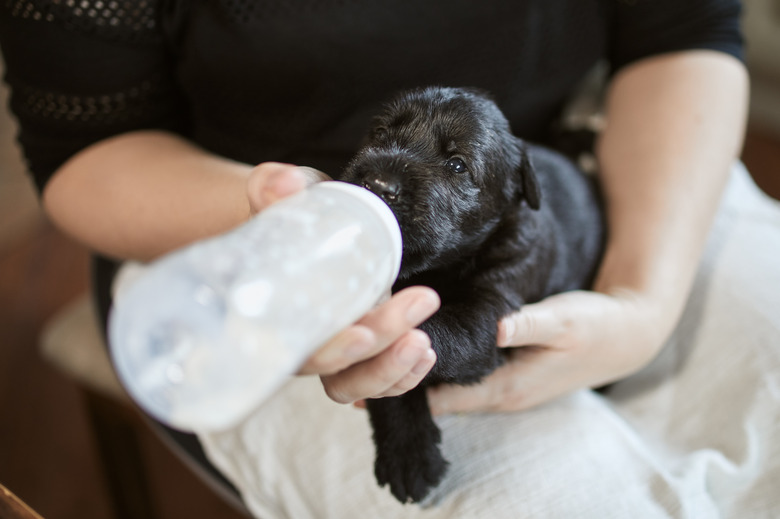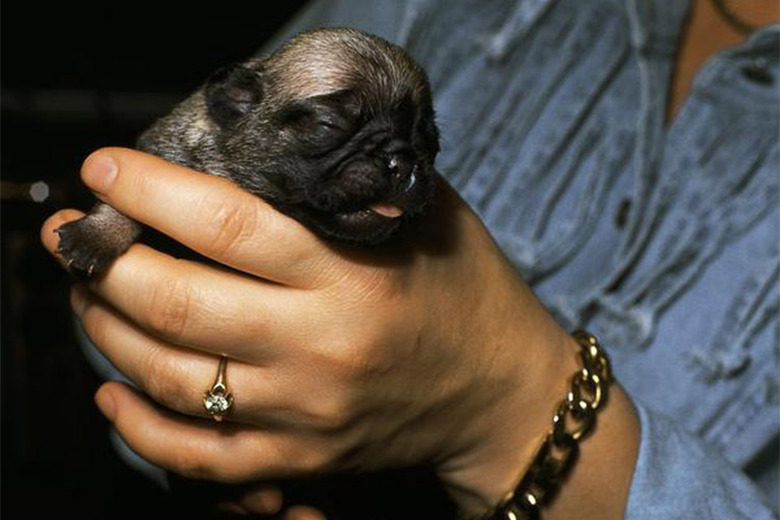How To Burp Newborn Puppies
Orphaned puppies who are being bottle-fed by human caretakers require lots of attention and care. Bottle-fed puppies are prone to getting air trapped in their stomach and could face discomfort or even health issues. Burping them after every meal is a quick and easy way to alleviate any air trapped during feeding, and then they can go right back to exploring and playing.
Why do you have to burp puppies?
Why do you have to burp puppies?
While many puppies wriggle enough on their own to stimulate the release of air, burping is necessary for bottle-fed puppies. Burping can also be required for puppies facing other health issues, such as megaesophagus. Adult dogs do not need to be burped.
When an adult dog eats too quickly, this can lead to them swallowing a lot of air. Many dogs, especially those who really enjoy food, can anticipate mealtime with pacing, begging, or barking before they're actually fed. That pent-up excitement usually leads to quickly scarfed-down dinners, which in turn leads to a buildup of air that is expelled by a burp.
Adult dogs burping can be an indication that they need to slow down when eating their meals. Consider spreading out a meal by offering only a handful of food at a time. You could work on getting your dog to wait for your queue before they begin eating. You may want to invest in a dog puzzle feeder, which has the added benefit of keeping your dog mentally stimulated. Even scattering food in grass can slow your pup's eating and help alleviate burping in dogs.
Bottle feed newborn dogs before burping
Bottle feed newborn dogs before burping
Using the proper method to bottle-feed newborn puppies can greatly reduce the amount of air swallowed. In addition to obtaining commercial-grade formula, which is produced with the needs of infant puppies in mind, ask your veterinarian or visit a local pet store to get a pet nurser bottle.
When feeding, tip the bottle to diminish swallowed air. While human babies nurse on their back, it is more natural for a puppy to be fed right-side up. Expect to feed an orphaned pup every two to three hours. One important note — only use commercial puppy milk replacer or puppy formula for bottle-fed puppies. Milk replacement formula made for a human baby or homemade puppy milk doesn't supply the right nutrients they need. Use warm water that's at body temperature — not too hot! — and test it yourself in little drips before you put it in the puppy's mouth for the first time.
If your baby puppy doesn't have a mother, you'll likely have to help them poop too, since this is a job that Mother Dog usually does. For the first week or two weeks of age gently rub the puppy's genitals with a warm, wet cotton ball or soft cloth to stimulate urination and defecation, as the mother dog would by licking.
How to make a puppy burp
How to make a puppy burp
Puppies often have to be burped after being bottle-fed. Follow this procedure to learn how to burp a puppy.
First, pick up your puppy very gently after each meal. Puppies who are bottle-fed are especially prone to swallowing air, and burping them after they eat releases it.
Next, hold the puppy up against your torso with their stomach pressed against you. They should be sitting upright with their face looking over your shoulder, similar to how you would hold a baby who needs burping.
Gently pat them on their sides and back. You will eventually hear them burp a little, at which point you can put them back down on the ground.
The bottom line
The bottom line
All dogs burp occasionally. But if the burping seems excessive or constant, they need to be assessed by a veterinarian to make sure there's no underlying medical condition. Newborn baby pups who are bottle-fed should be gently burped after every meal to ensure trapped air is released. As they begin to eat on their own, they will no longer need to be burped, but always keep an eye on them to make sure they are eating normally. If your dog likes to eat too quickly, keeping mealtimes calm and using techniques, like slow feeders, to slow them down can help.


